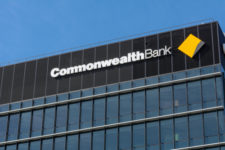CBA Faces Criminal Charges for ‘Hawking’

The Commonwealth Bank is facing 87 criminal charges relating to the sale of life insurance policies through its insurance arm, CommInsure.
The charges relate to practices and sale techniques used in 2014, and the Australian Securities and Investment Commission (ASIC) says the bank ‘turned itself in’ over the questionable tactics it used to sell insurance products to customers.
First bank to face criminal charges
It is the first major bank to face criminal charges following last year’s Financial Services Royal Commission. The Director of Public Prosecutions formerly laid charges against the bank for “hawking” offences for trying to sell insurance products through unsolicited phone calls, via a contracted telemarketing firm.
It is alleged that CommInsure provided customer contact details from its existing customer database to the telemarketing firm at the end of 2014 and the calls then made were unsolicited. In that regard, section 992A(1) of the Corporations Act 2001 (Cth) prescribes a maximum penalty of 6 months imprisonment for ‘offer[ing] financial products for issue or sale in the course of, or because of, an unsolicited meeting with another person.’
Section 992A(3) imposes the same maximum penalty for ‘mak[ing] an offer to issue or sell a financial product in the course of, or because of… an unsolicited telephone call to another person; or an unsolicited contact with another person in another way…’ unless the institution has complied with a range of conditions. It is alleged the CBA did not comply with those conditions.
The CBA has since sold the CommInsure business, but it is still potentially liable because it owned the insurance company at the time.
If the bank is liable, the financial penalty is estimated to be between $2 to 3 million in fines in addition to potential prison sentences for individual offenders. Many consider the financial penalties to be paltry, considering CBA’s net profit after tax was almost $8.5 billion for the 2019 financial year.
The case will be mentioned at the Downing Centre Local Court in Sydney on 19 November 2019.
These charges don’t relate to findings by the Financial Services Royal Commission which heard a separate matter – that CommInsure used outdated medical definitions, leading to some claims by heart attack and breast cancers being rejected. ASIC investigated CommInsure in 2016, but ultimately found that while it had treated its customers badly, it had not broken the law.
Other scandals uncovered by last year’s Royal Commission
However, during the Royal Commission, Rowena Orr, one of the barristers assisting Kenneth Hayne, pointed out that CommInsure may have indeed committed misconduct in the claims handling process. Ms Orr also suggested that the company may have breached laws by making false and misleading statements in its advertising about coverage for heart attacks. The Royal Commission also heard that CommInsure withheld information from the Financial Services Ombudsmen during its investigation of a customer complaint.
In delivering his final report, Kenneth Hayne referred 24 additional cases to industry regulators and two others for consideration for criminal charges.
CBA Executives also came under fire during the Royal Commission because they knowingly charged dead clients for advice. Those executives could be sent to jail if they are found guilty.
Harsh new penalties for white collar crime
Schedule 3 to the Corporations Act 2001 (Cth) lists the current penalties for offences under the legislation.
The Schedule makes clear that offences under section 184 of the Act for breaching requirements of acting in good faith, properly using position and authorised use of information, for example, now attract a maximum prison sentence of 15 years (up from 5 years previously).
The harsher penalties were rushed through by the Federal Government last year, in the wake of revelations discovered by the Royal Commission. The law reforms also stipulated that companies would face maximum fines of $210 million, with their annual turnover stripped by 10 per cent under new penalties.
Around the same time, the Government also pledged to allocate an additional $51.5 million to ensure the Federal Court and Commonwealth Prosecutors have sufficient resources to ensure financial institutions are brought to account for their misconduct.
CBA is no stranger to controversy. In the past several years the bank’s financial planning division has been accused of forgery, fraud and cover ups too. A former CBA executive was found guilty of fraud in 2017, but avoided a prison term.








